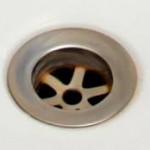Angry readers complaining about the magazine putting Muse on the cover inspired this great post by Classic Rock Magazine’s editor Scott Rowley. How The Music Press Spoiled Rock blames the fragmentation of the music press into specialist publications catering for ever-smaller genre-specific niches for encouraging narrow-minded tribalism. But it saves the real vitriol for the NME.
The wrong inkie survived. Sounds and Melody Maker were both in love, in different ways, with the rock’n’roll woah. Sounds with its piss-taking, street-wise fascination with rock’s comic book foolishness, MM in its always-progressive-and-frequently-pretentious search for the next big thing. The NME, meanwhile, looked down its nose at anything it deemed ‘uncool’. What constituted ‘uncool’ could change from one week to the next but two of the main principles seemed to be that: 1) It was uncool to like rock (spelled ‘RaWk’), and 2) It was uncool to live outside London – in what Londoners like to call ‘the provinces’ (aka the rest of the country).
The whole thing is well worth a read, and when it comes to blame it’s certainly a target-rich environment. But I’m not the only one to believe the NME has had an especially corrosive influence to the detriment of Britain’s music scene as a whole. I’ve jokingly stated that Britain will never have a decent mainstream music scene until the last Radio One daytime DJ is strangled by the last copy of the NME.
Despite declining circulation figures that ought to have heralded a slide into a well-deserved irrelevance, the NME still punches well above it’s weight in terms of cultural influence. Much of The Guardian’s music writing, for example, remains steeped in the NME world-view, despite recent and welcome attempts to broaden their coverage. And likewise Later with Jools Holland has always been overloaded with NME-style indie bands, with rock never more than a token. When it’s unthinkable to imagine bands like Nightwish, Opeth or Porcupine Tree ever appearing on the show, let alone someone like Panic Room or Touchstone, you know there’s a problem.
Yes, the closed-mindedness of many classic rock (and prog) fans is nothing to be proud of, Scott Rowley is right to point out that much of this is a defensive reaction to the way rock, despite it’s popularity, is all-too-often marginalised by large sections of the media.
 With news that the NME’s circulation has sunk to a pitiful 15,000, and
With news that the NME’s circulation has sunk to a pitiful 15,000, and